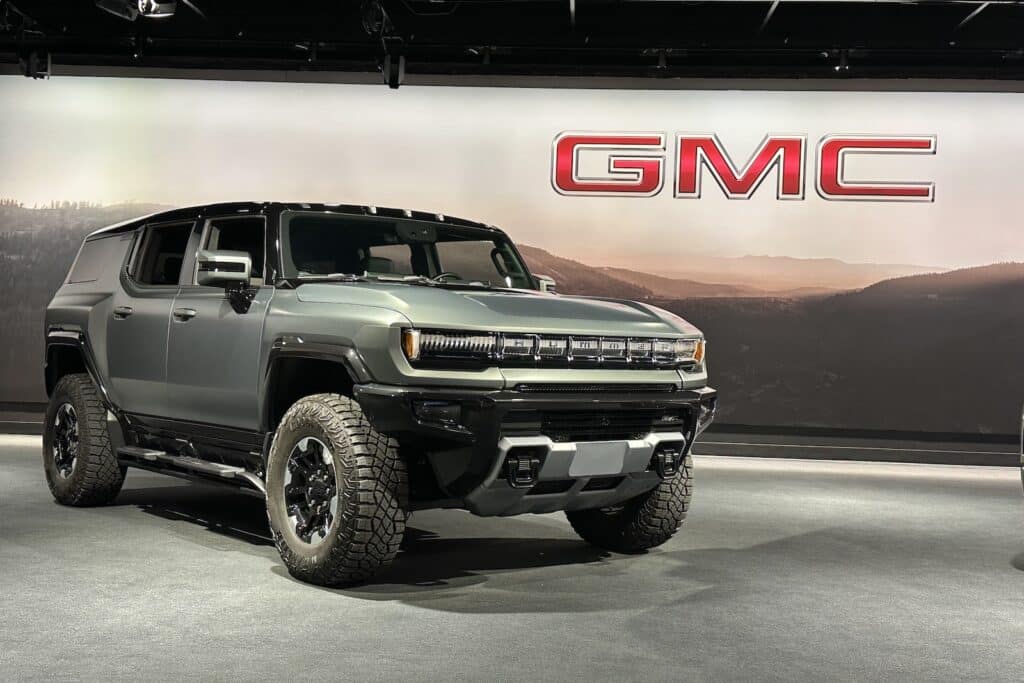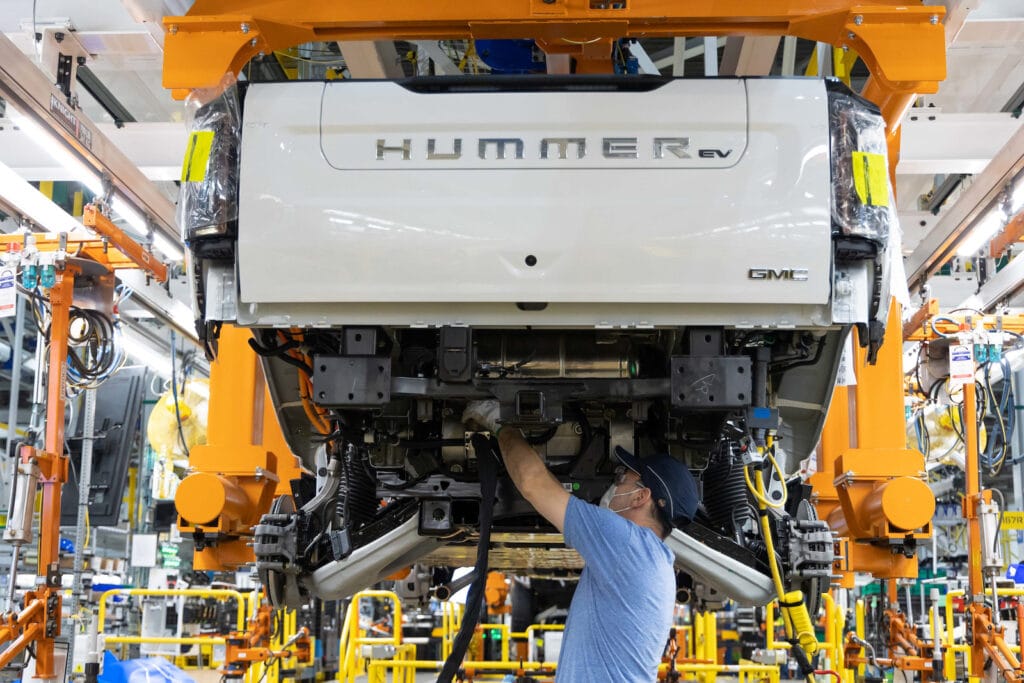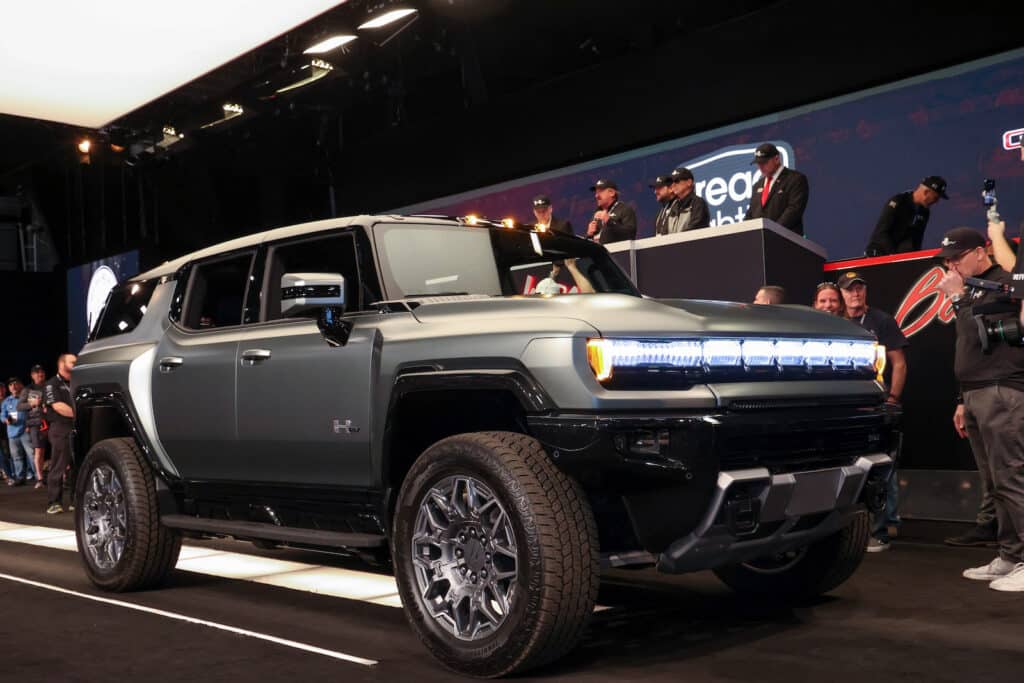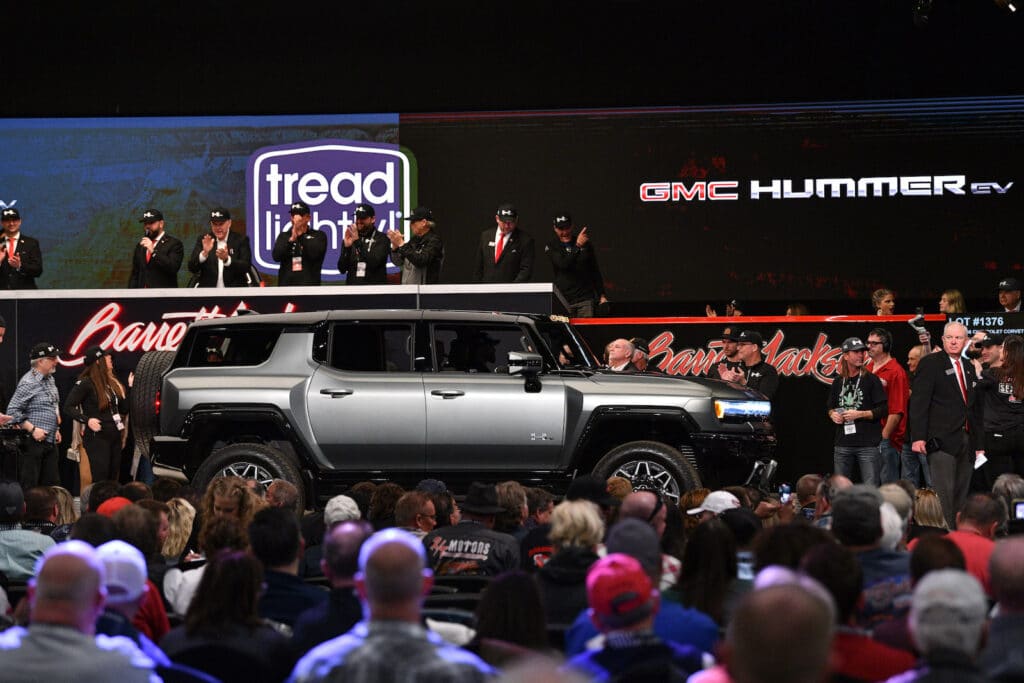GMC Launches Production of Hummer SUV; Needs Until 2024 to Fill Outstanding Orders
GMC launched production of its second all-electric vehicle, the Hummer EV SUV, at its Factory Zero plant in Detroit Monday — but that may be small comfort to those who’ve already placed orders, as brand boss Duncan Aldred said it could take until sometime in 2024 before GMC can meet initial reservations.

Like the rest of parent General Motors, the light truck brand is in the midst of shifting from internal combustion engines to battery-electric powertrain technology and its readying a third model, the Sierra EV pickup to go into production about a year from now. GMC is working on several other all-electric models, Aldred confirmed, though he declined to identify what will follow next — or when.
GMC also is “gauging interest” in overseas markets, China in particular. But while the response has been positive, Aldred said a final decision on bringing the electric truck line to the world’s largest market for EVs has yet to be made.
Long waiting list for Hummer EVs
In a year when GMC scored a record market share and all-time high transaction prices, Hummer was one of its big success stories, Aldred said during a media briefing Monday. The automaker took 90,000 advance orders for the two EVs by the time it cut off orders last year. Even so, “that takes us out to ’23, really through 2024,” before all those customers will be able to take delivery, he said.
When the order bank was closed, the original Hummer EV pickup accounted for about 60% of advance reservations, though he suggested that should level out longer term. But GMC has not yet decided when to reopen the Hummer order bank.
As with the pickup, the new model initially will be sold in fully loaded Edition One form, at $105,595 for the SUV. But less expensive variants will start rolling out later this year. The very first Hummer EV SUV was sold for $500,000 during a charity event at the Barrett-Jackson Auction in Scottsdale, Arizona over the weekend.

Really high expectations
Aldred said he also has “really high expectations” for the Sierra EV once it debuts next year. That optimism may be buoyed by the strong demand for rival Ford Motor Co.’s F-150 Lightning.
That automaker has so far logged more than 250,000 advance orders and officials recently said they also will need until at least 2024 to fulfill that order bank. Ford initially tooled up a dedicated EV plant in Dearborn, Michigan to produce 25,000 Lightnings annually. It is now expanding that operation to handle as many as 150,000 a year.
There’s significant “flexibility” at the Factory Zero plant in Detroit, said Aldred, but the facility also has to handle several other EVs parent GM is bringing to market. That includes the Chevrolet Silverado EV that will go into production this quarter.
Future EV plans
Asked by TheDetroitBureau.com about future EV plans, Aldred said GMC is in line with the strategy of its parent, General Motors CEO Mary Barra outlining a “path to an all-electric future.”

But it will take longer to come up with some products, dues to their “use case,” Aldred cautioned. Heavy-duty pickups, he said “will be amongst, if not the, last to go (electric).”
For the moment, EVs remain a fractional player in the U.S. market — though their collective market share has grown from barely 1% in 2019 to 5% last year. But gas and diesel products will remain the dominant part of the line-up for GMC for some time.
Carving out a unique niche
The brand itself was long a niche player, marketing more upscale versions of the SUVs and pickups sold by General Motors’ mainstream Chevy brand. But it has been carving out a more distinctive identity since British-born Aldred was appointed general manager of both GMC and sibling brand Buick in 2010.
Among the key moves, GMC has launched two distinctive sub-brands, the highline Denali, and the off-road-oriented ATX. And they’ve recently introduced even more exclusive packages, Denali Ultimate and ATX4.
Denali and ATX accounted for a full 46% of GMC’s U.S. sales last year, attracting a younger, more affluent customer who “wants everything,” said Aldred. That’s helped drive the brand’s average transaction price to $59,111 last year. Denali-badged vehicles had the third-highest transaction price in the industry, at $76,392, according to industry data, leading a number of luxury-segment marques such as BMW and Jaguar-Land Rover.

“While we don’t position this brand as luxury,” said Aldred, “it transacts like one.”
A good year — for the most part
While 2022 was a relatively good year for GMC, Aldred acknowledged that it could have been better. Like the rest of the industry, it struggled to deal with shortages of semiconductors and other key components that limited production and, in turn, sales.
“Things are much better now,” the executive said, “but we’re not (home) free.”
Having more semiconductors will be particularly helpful to finally begin ramping up Hummer production, since the two models are heavily reliant on digital technology.
Overseas opportunities
More broadly, boosting production could help GMC’s broader expansion plans. The brand does have a modest presence abroad, and saw demand rise 28% in Mexico in 2022, and 17% in the Mideast.
Now, it is looking at other opportunities, among other things preparing to launch in South Korea this year. China could follow with the Hummer. But the one challenge for GMC is the size of its light truck products which makes it difficult to build demand in many parts of the world.
Auto Lovers Land
Comments
Post a Comment